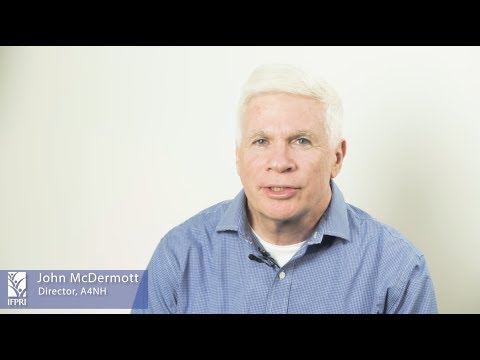
Back
Who we are
With research staff from more than 60 countries, and offices across the globe, IFPRI provides research-based policy solutions to sustainably reduce poverty and end hunger and malnutrition in developing countries.

researcher spotlight
Kate Amber is a Senior Research Fellow in the Markets, Trade, and Institutions Unit. Kate’s research broadly focuses on interventions that can increase incomes for smallholders and other microenterprises in agrifood value chains, with a specific focus on the inclusion of women. This includes work on programming in fragile settings, innovations in agricultural finance, and regulatory solutions for food safety.

Back
What we do
IFPRI is committed to providing policy-relevant research for better nutrition and livelihoods.

Back
Where we work
IFPRI currently has more than 600 employees working in over 80 countries with a wide range of local, national, and international partners.
Unit
Agriculture for Nutrition and Health (A4NH)

Hunger, malnutrition, and poor health are widespread and stubborn development challenges. Agriculture has made remarkable advances, but its contribution to improving the nutrition and health of poor farmers and consumers in developing countries lags behind.
The CGIAR Research Program on Agriculture for Nutrition and Health (A4NH) begins with consumption – of healthy, affordable, and safe foods – rather than supply, offering an innovative perspective on the relationship between agriculture, nutrition, and health through research that strengthens the knowledge base and new partnerships that lead to real outcomes. A4NH places strong emphasis on integrating gender and equity, as well as evaluation and impact assessment into its research, offering specific methods to support research and development by others.
As CGIAR’s only research program on nutrition and health, A4NH operates as a lens, with a particular focus on the system-level outcome of improving food and nutrition security for health. Recognizing the magnitude of the task, A4NH is led by the International Food Policy Research Institute (IFPRI), and managed by a group of four other CGIAR Research Centers and two academic institutions, and brings together the talents and resources of other CGIAR Research Centers plus a wide range of partners, to carry out research activities through five unique, yet complementary flagship programs and three cross-cutting units in at least 30 countries.